Mapping out a tailored program to help students successfully complete their course of study, and position themselves for further academic and career progression, was the theme at the SUNY Guided Pathways Institute held June 26-28 at Rockland Community College. The conference, the second of six scheduled at community colleges throughout the state, hosted presidents and chief academic officers from the following schools: Corning CC, Jamestown CC, Mohawk Valley CC, Monroe CC, Onondaga CC, Rockland CC, Suffolk CC, Sullivan CC, Tompkins Cortland CC and Westchester CC.
“Rockland Community College demonstrated its commitment to excellence recently when we hosted the second of six Guided Pathways Institutes of the State University of New York,” says Dr. Michael Baston, who has just completed his first year as the college’s president. “At RCC, we believe that placing students at the center of our operations will enable us to realize our mission – educating and guiding students in their quest for transformation of themselves and their communities.”
The Guided Pathways initiative provides each student with a road map toward completion of their degree and future advancement. Students are offered structured support in charting specific course sequences for their degree sheet, reaching benchmarks, and attaining desired learning outcomes. Students also receive valuable assistance in identifying careers and aligning their skills and knowledge with the requirements of four-year institutions and the labor market.
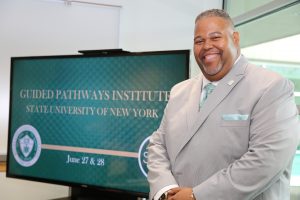
“This is not a one-size-fits-all approach,” says Dana Stilley, RCC’s team leader at the conference and the College’s vice president of student services. “The needs of students at RCC may be different from those at other institutions. Each school is unique.” Stilley also cited the College’s Occupational Therapy Assistant program, for which program mapping is underway, as a Guided Pathways model for other programs at RCC to emulate.
One of the sessions at the conference, “Student Perspectives,” led by RCC’s provost, Dr. Susan Deer, touched on the key message of providing support for students who do not have a success story to relate. Deer recounted an exercise from almost a decade ago wherein she asked students to write a paragraph explaining why they had opted for late withdrawal from a class, which is permitted up to 14 weeks into a semester. More than half attributed it to life issues, such as not having enough money for food or a bus pass, rather than academic problems. “This determines their future,” Dr. Deer says. “It is very important that we really listen to students to find out what they need, or want, in order to fulfill their goals.”
The Guided Pathways project encompasses all segments of the college community. “It is not a top-down initiative,” says Dr. Deer. “There are decision makers across the campus. The faculty, staff and students all take ownership of it.” She noted that full implementation of the program is not a short-term proposition, but rather may require five years to execute properly.
The three-day institute received a favorable reception from the participants. “Over and over again, presidents and members of visiting teams remarked how impressed they were with Rockland’s hospitality and kindness,” says Dr. Baston, an American Association of Community Colleges Pathways coach who also participated in the conference in that capacity. “Our students demonstrated the best of why we are engaged in this work in the community college, to help them reach new heights through our purpose-driven educational approach.”



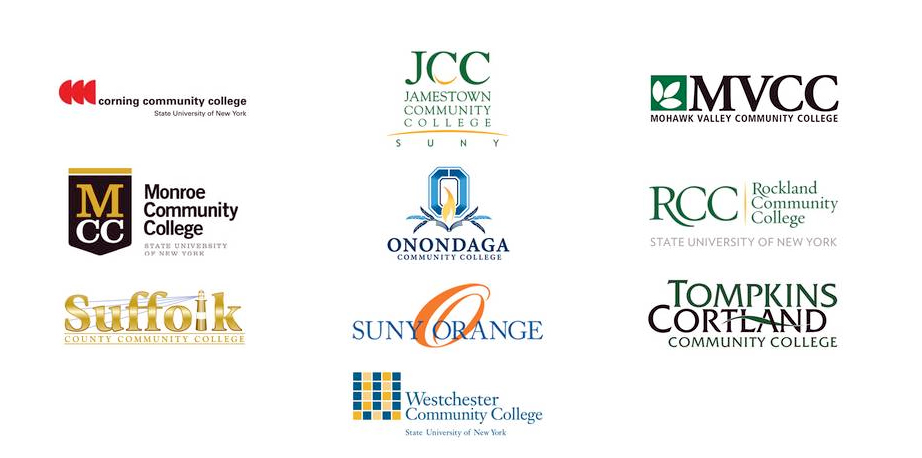
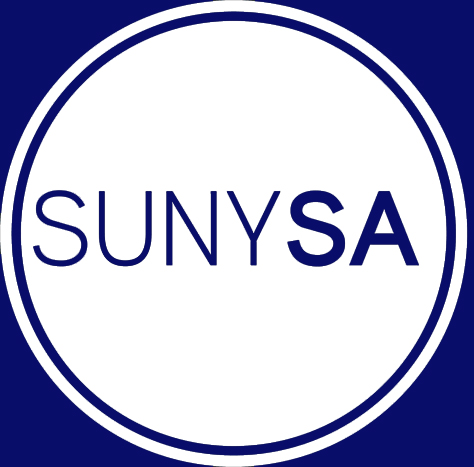
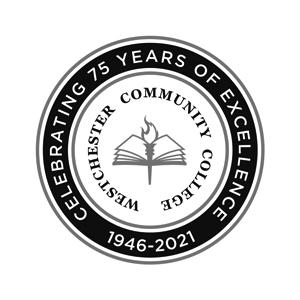
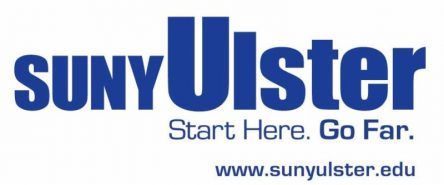
Facebook Comments